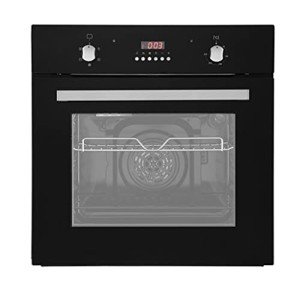The Rise of Built-In Ovens in the UK: A Comprehensive Guide
Built-in ovens have actually become an important function in modern-day cooking areas across the UK. Combining style, functionality, and innovation, these appliances can improve both the aesthetic and functional aspects of culinary areas. As homeowners pursue efficiency, style flexibility, and technological innovation, built-in ovens have actually emerged as a favored choice. This article will explore the advantages, types, features, and top brand names of built-in ovens available in the UK, in addition to a guide to assist consumers make informed options.
Benefits of Built-In Ovens
Built-in ovens offer various benefits over conventional freestanding designs. Here are a few of the crucial advantages:
- Space Efficiency: Built-in ovens can be integrated into kitchen cabinetry, maximizing floor space and creating a smooth look.
- Smooth Design: Available in different finishes and styles, built-in ovens can raise the general aesthetic of the kitchen.
- Multi-Functionality: Many built-in ovens come with additional functions such as convection, steam cooking, and self-cleaning options.
- Enhanced Accessibility: Positioned at eye level, built-in ovens offer easier gain access to, minimizing the need to flex down, which can be specifically helpful for those with movement issues.
- Improved Technology: With clever innovation combination, many built-in ovens enable users to manage cooking time and temperature level from their mobile phones while supplying innovative cooking alternatives.
- Increased Resale Value: Homes equipped with modern-day built-in appliances frequently attract purchasers more easily, potentially increasing residential or commercial property worth.
Types of Built-In Ovens
Picking the best type of built-in oven is vital for conference particular cooking needs. Here are the typical types:
| Type | Description |
|---|---|
| Single Oven | A standard choice ideal for smaller cooking areas, accommodates one cooking compartment. |
| Double Oven | Uses 2 different compartments, allowing for simultaneous cooking at various temperatures. |
| Compact Oven | A smaller variation, ideal for restricted areas, typically integrating multifunctionality. |
| Steam Ovens | Usage steam for cooking, maintaining moisture and nutrients, exceptional for healthy meals. |
| Convection Ovens | Flow hot air for even cooking, lowering cooking energy and times usage. |
| Combination Ovens | Integrate microwave abilities, providing adaptability for quick meals or re-heating options. |
Secret Features to Consider
When picking a built-in oven, it's important to consider certain necessary features that match individual needs. The table below highlights some of the crucial functions to look for:
| Feature | Description |
|---|---|
| Capacity | Determined in litres; pick based upon household requirements and cooking frequency. |
| Energy Rating | Shows energy effectiveness; appearance for A or higher rankings to conserve on energy costs. |
| Control Options | Choices may consist of knobs, touch controls, or smart innovation for benefit. |
| Cleaning up Type | Consider choices like self-cleaning or steam cleansing for easier maintenance. |
| Warranty & & Support | Check the guarantee used by the maker for assurance. |
Popular Brands of Built-In Ovens in the UK
When purchasing a built-in oven, it's suggested to think about reputable brand names understood for their quality and customer assistance. Some of the leading brand names readily available in the UK include:
- Neff
- Bosch
- Miele
- Siemens
- Smeg
- AEG
- Electrolux
- Zanussi
These brands are acknowledged for their development, reliability, and series of functions, catering to different consumer choices and budgets.
Setup Tips for Built-In Ovens
Appropriate setup is crucial for the performance and security of built-in ovens. Here are some important suggestions:
- Professional Installation: Engage a certified electrical contractor or installer familiar with built-in units to guarantee safety and compliance with UK policies.
- Area Planning: Measure cabinet dimensions precisely and consider ventilation requirements.
- Check Electrical Supply: Ensure the power supply fulfills the oven's requirements to avoid electrical failures.
- Usage Manufacturer Guidelines: Follow the producer's instructions for setup to avoid voiding service warranties.
Regularly Asked Questions (FAQs)
1. How do I pick the best size built-in oven?
When choosing a built-in oven size, consider the readily available kitchen space, your cooking routines, and family size. It's important to determine the cabinet area properly before buying.
2. Can I set up a built-in oven myself?
While it's technically possible, it is highly advised to utilize a professional installer to make sure security and to abide by building regulations, especially concerning electrical connections.
3. What is the typical cost of a built-in oven in the UK?
The cost of built-in ovens varies widely depending on functions, capability, and brand name. On average, consumers can anticipate to pay in between ₤ 300 to ₤ 2,500.
4. Are built-in ovens more energy-efficient than standalone ovens?
Lots of built-in ovens are created with energy-efficient innovation, frequently ranked greater than standalone designs, making them a much better long-term financial investment for energy cost savings.
5. What maintenance is needed for built-in ovens?
Regular cleansing, inspecting seals and gaskets, and guaranteeing ventilation slots are clear are necessary for preserving the efficiency of built-in ovens.
Built-in ovens represent a blend of style, functionality, and advanced cooking innovation, making them a popular choice among UK house owners. Understanding Electric built in oven and hob packages , types, and functions of these appliances will empower customers to make informed decisions that enhance their culinary experiences. With various credible brand names readily available and an increasing focus on energy performance and clever innovation, the future of built-in ovens looks brighter than ever in the UK kitchen landscape.

